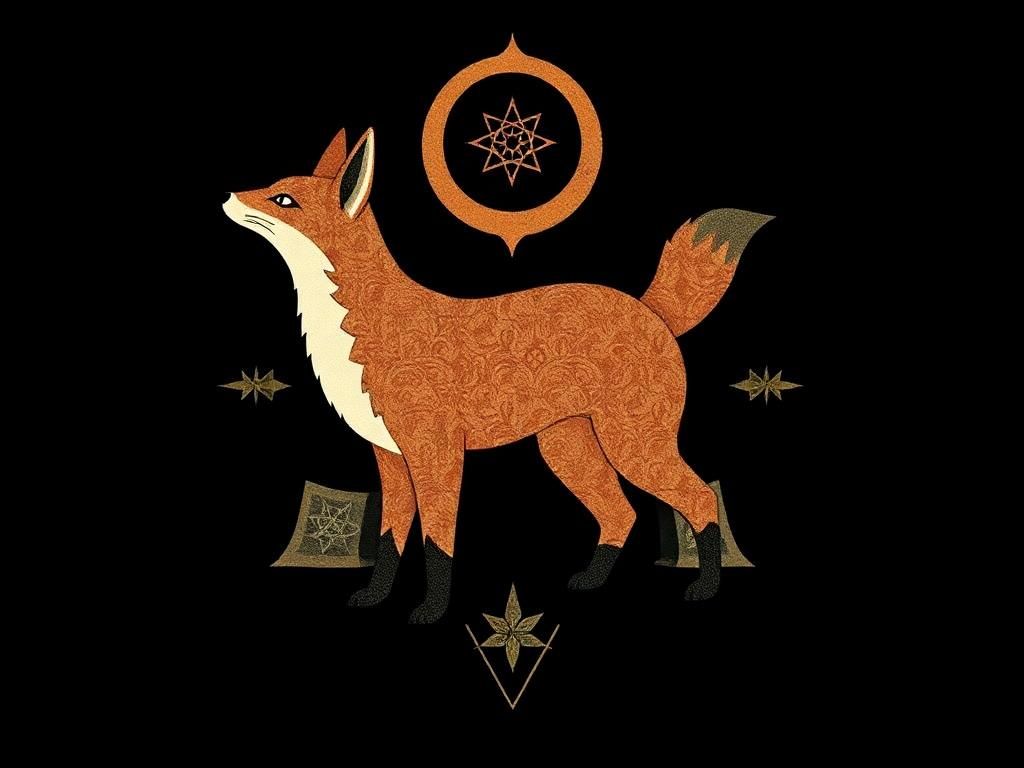The use of symbols in culture plays a vital role in how societies express beliefs, values, and stories. Animal symbolism has a profound impact on this tapestry, as various creatures are assigned specific meanings that resonate through history and tradition. Among these animals, the fox stands out as a recurrent symbol in diverse cultures worldwide, each attributing unique significance to this clever creature.
Historical Context of the Fox in Symbolism
Ancient Civilizations
The fox has long been revered in ancient myths and folklore, serving as a potent symbol across cultures. In Greek and Roman mythology, the fox is often depicted as cunning and crafty. A prominent example of this is found in Aesop’s Fables, where the fox embodies intelligence and trickery, often outsmarting other animals. The fables highlight the fox’s ability to navigate challenging situations through wit and resourcefulness, cementing its reputation as a symbol of cleverness that resonates even today.
Indigenous Perspectives
For Native American cultures, the fox holds a place of importance as well. It is often seen as a figure of wisdom and deception, teaching valuable lessons about survival and strategy. The fox’s duality mirrors the balance of nature, adapting to various environments while embodying a spirit that is both playful and shrewd. In Shinto, a belief system originating in Japan, the fox (or kitsune) is viewed as a guardian spirit that possesses transformative powers. This emphasizes the fox’s significance in a spiritual context, linking it to elements like fertility and agriculture.
Common Symbolic Meanings of the Fox
Cunning and Intelligence
The fox’s reputation for cleverness stems from its natural behavior and adaptability. It is a master at evading danger and finding sustenance, qualities that resonate deeply with cultures around the globe. This cleverness is frequently referenced in various narratives, reinforcing the idea that the fox is a symbol of intelligence.
Adaptability and Survival
As a creature capable of thriving in diverse surroundings, the fox symbolizes resourcefulness. Adaptability becomes ingrained in the fox’s identity, embodying the idea that survival is often rooted in an ability to adjust and improvis. This adaptability makes the fox a compelling symbol for those navigating life’s challenges.
Playfulness and Mischief
The fox is often viewed as a trickster, a representation of playfulness and mischief. In numerous stories and fables, the fox uses its wit to manipulate situations, whether for comedic effect or to teach profound life lessons. This trickster archetype is celebrated in many cultures, showcasing the fox’s capacity for joy, cleverness, and subversion of order.
Regional Variations in Fox Symbolism

Western Perspectives
In European folklore, the fox is portrayed in diverse lights – sometimes as a noble creature, imbued with wisdom, and other times as a representation of deceit. Stories reflecting these traits play an essential role in shaping perceptions of the fox as both a cunning and charming animal.
Asian Perspectives
In Japanese folklore, the kitsune is a celebrated figure, often depicted as a protector that possesses mystical abilities. Its spiritual significance extends into themes of duality, representing both good and evil. Similarly, in Chinese culture, the fox is viewed as a creature of shrewdness and intelligence, often associated with magical transformations and wisdom guiding decisions.
The Fox in Literature and Popular Culture
Iconic Literary Representations
Fox characters have been prominent in literature, highlighting the attributes that define them. Notable examples include Roald Dahl’s Fantastic Mr. Fox, which depicts a clever protagonist navigating societal expectations. In literature, foxes frequently act as symbols of rebellion, showcasing the struggle against authority and conventional norms.
Fox Symbolism in Modern Media
In films and television, foxes continue to represent cleverness and charisma. They are often portrayed as endearing characters that win the audience’s hearts while navigating complex narratives. Various animated films have showcased these charming traits, reinforcing the fox symbolic meaning in contemporary storytelling.
Spiritual and Personal Symbolism of the Fox
Fox as a Spirit Animal
Many cultures view the fox as a spirit animal, embodying characteristics such as adaptability and cleverness. Those who resonate with the fox often find guidance in their personal journeys, drawing inspiration from its resourceful nature. This spiritual connection serves to remind individuals of their inherent strengths and the importance of navigating challenges wisely.
Interpretation in Dream Analysis

Dreaming of a fox can hold various meanings, typically revolving around themes of conflict, cunning, or change. The emergence of a fox in dreams can signify a call for vigilance in relational dynamics or an invitation to embrace one’s own cleverness in pursuing goals. Such dreams may serve as reminders of one’s adaptability and resourcefulness.
Conclusion
The symbolic meanings encapsulated by the fox underscore its multifaceted role across cultures. From embodying cleverness and adaptability to serving as a trickster figure, the fox’s impact permeates various dimensions of human experience. The relevance of fox symbolism today remains potent, inviting individuals to explore their personal connections with this enigmatic creature.
References
1. Aesop’s Fables: https://www.aesopfables.com
2. Shinto and its Myths: https://www.learnreligions.com/shinto-459026
| Symbolic Meaning | Description | Cultures Represented |
|---|---|---|
| Cunning | Representation of cleverness and intelligence | Greek, Roman, Native American |
| Adaptability | Symbol of resourcefulness and survival | Indigenous cultures, Asian traditions |
| Playfulness | Embodiment of trickster attributes | European folklore, Japanese folklore |
| Spirituality | Fox as a protective spirit animal | Shinto, various Indigenous beliefs |
Frequently Asked Questions (FAQs)
1. What does it mean when a fox appears in my dreams?
It may symbolize alertness, the need for cleverness, or life adjustments you need to make.
2. Why is the fox considered a trickster figure?
The fox often employs cunning and wit to navigate complex situations, reflecting dual natures of wisdom and mischief.
3. How does the fox symbolize adaptability?
The fox thrives in various environments, showcasing its ability to adjust and find resources regardless of circumstances.
4. Can the fox be a spirit animal for everyone?
Yes, many people find the qualities of the fox resonate with their personal journey, offering guidance and insights.
5. What are some common cultural representations of the fox?
The fox appears prominently in fables, folklore, and modern stories across cultures, often symbolizing cleverness or cunning.
6. How do foxes appear in popular culture?
Foxes often serve as charming, clever characters in books and films, depicting their symbolic meanings in a relatable way.
7. What is the significance of the kitsune in Japanese culture?
The kitsune symbolizes transformation and duality, often acting as a guardian spirit in Shinto beliefs.
8. Are there negative connotations associated with fox symbolism?
While many aspects are positive, the fox can also represent deceitfulness in certain narratives.
9. How can understanding fox symbolism aid personal growth?
Embracing the characteristics of the fox may inspire individuals to harness their cleverness and adaptability in daily challenges.
10. What role does the fox play in Aesop’s Fables?
In many fables, the fox is used to illustrate moral lessons about intelligence, consequences, and survival.
